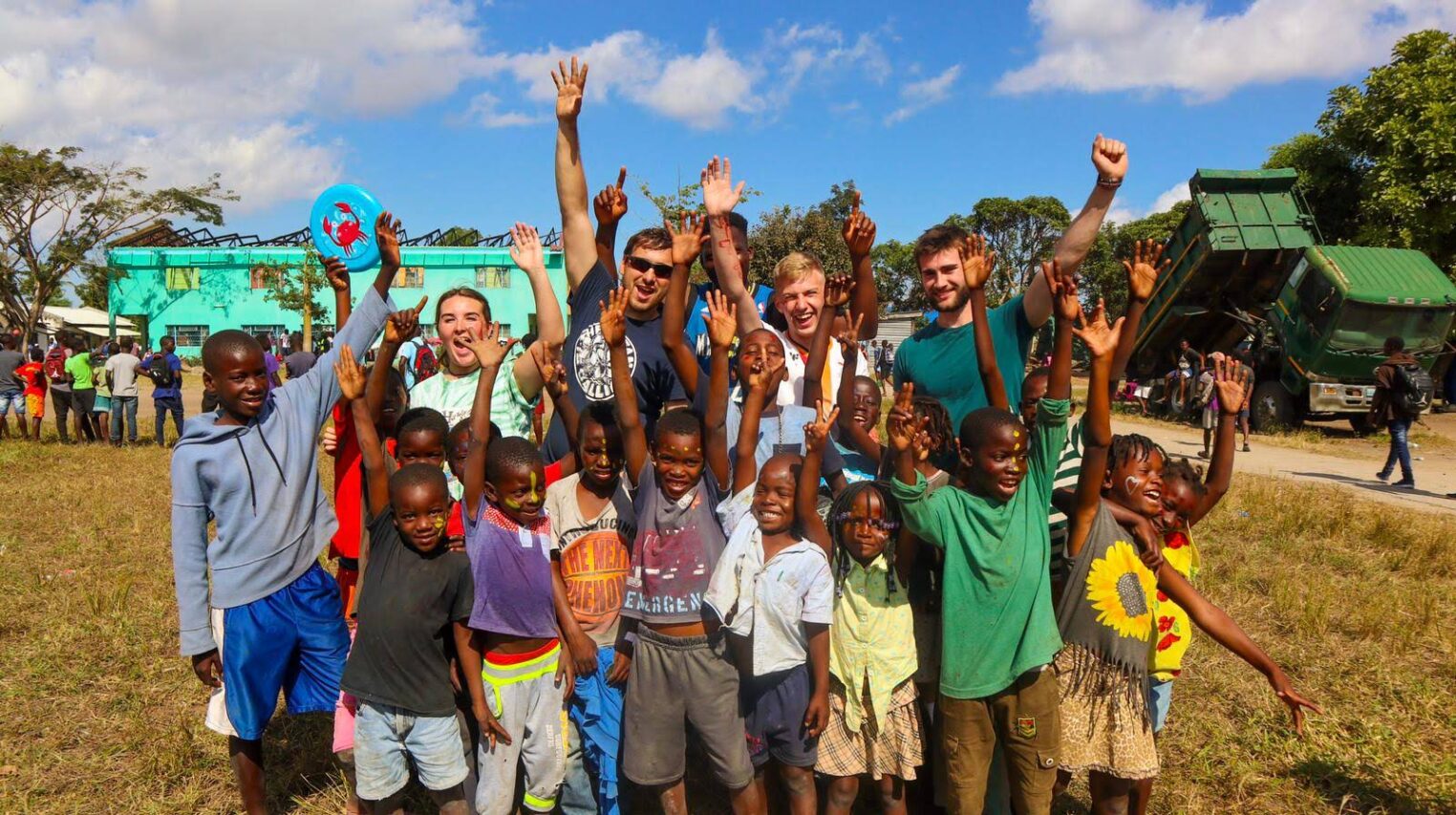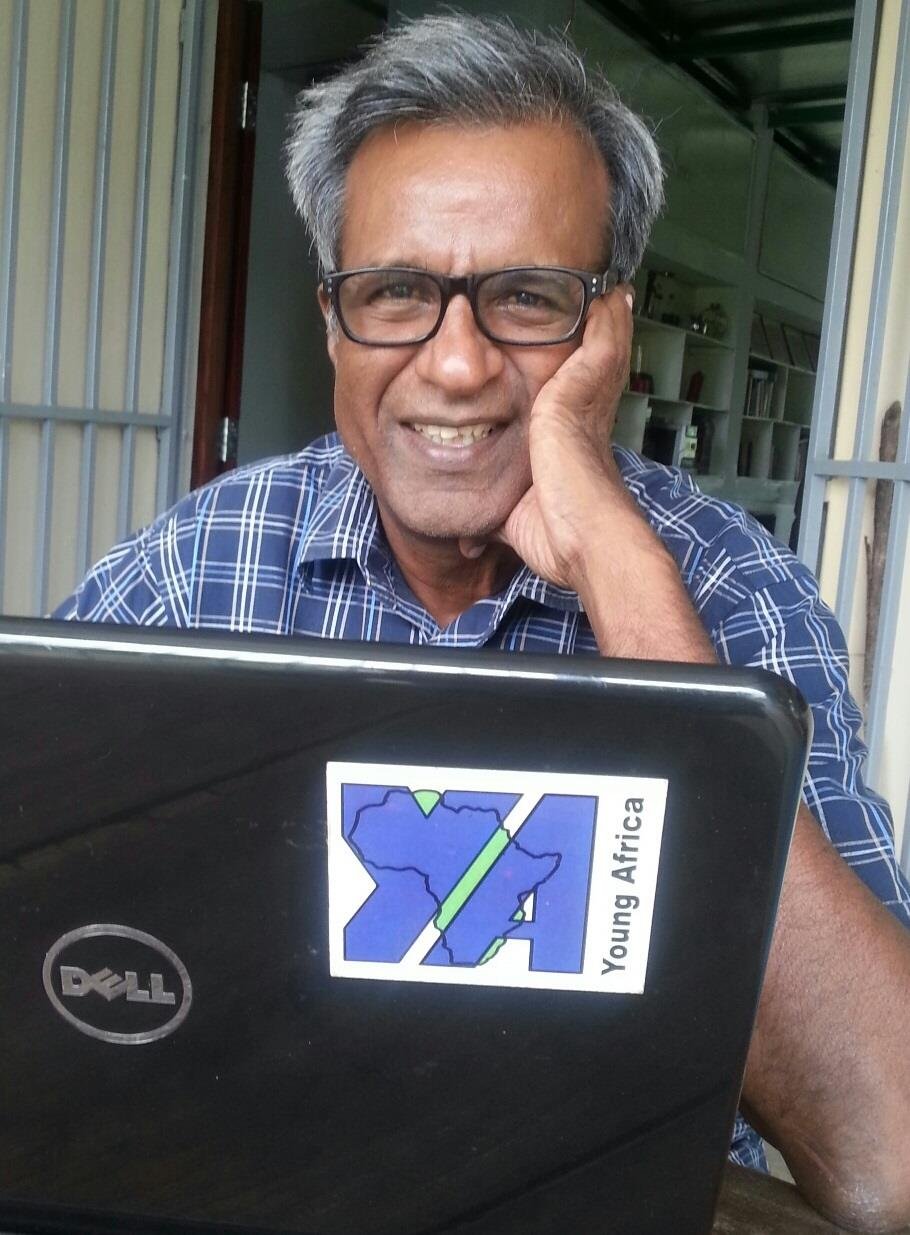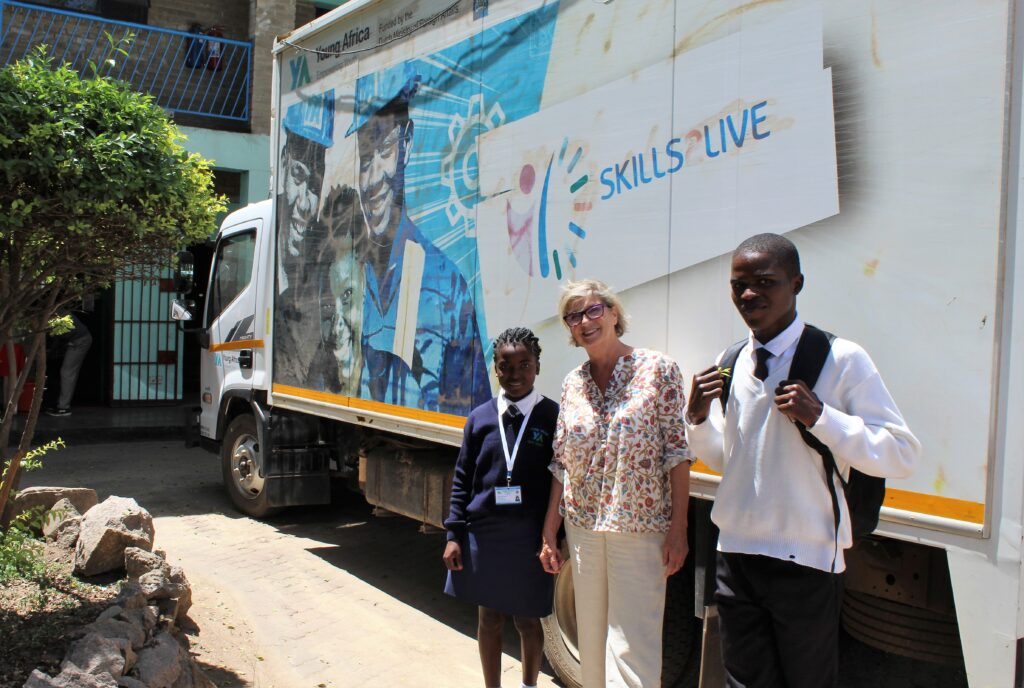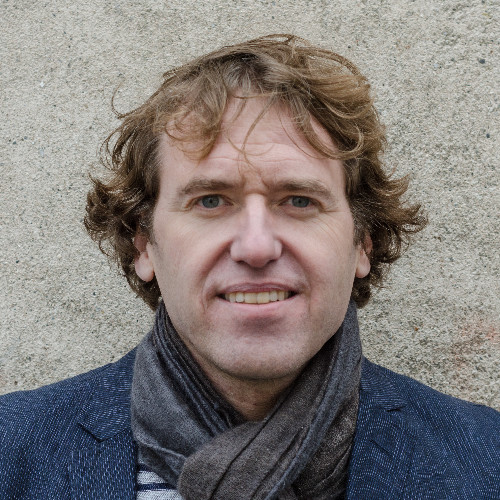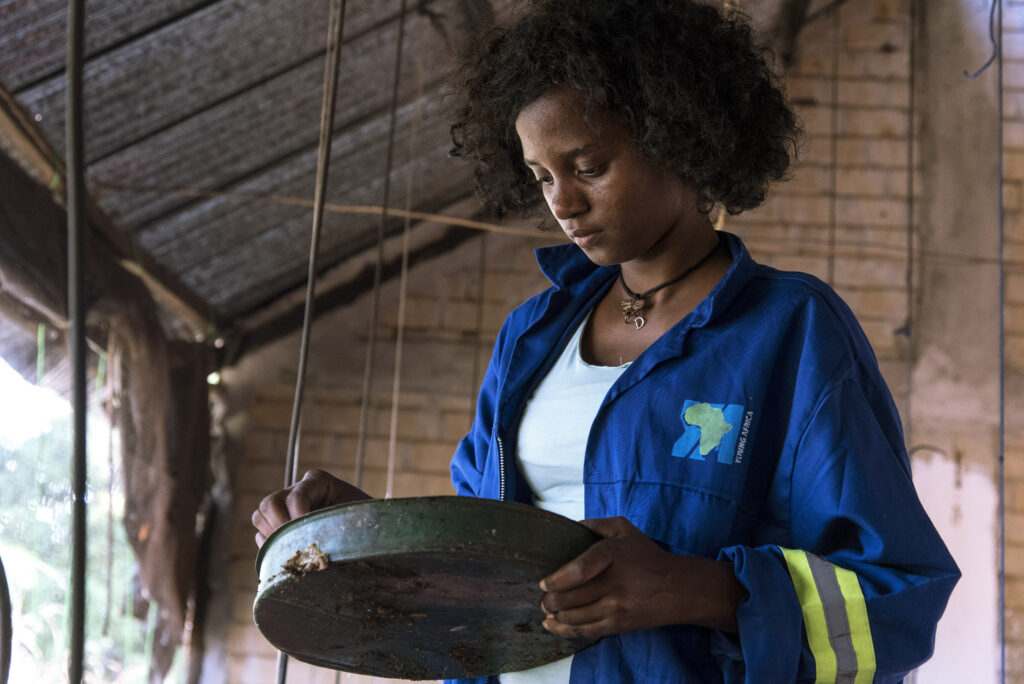
From Beira City: Young Africa Transforms Lives
- Young Africa trains more than 1,000 young people and over 600 women are offered scholarships annually.
- “Mobile” training reaches the wider regions of Maputo and Cabo Delgado.
Young Africa, a Mozambican organization, based in the city of Beira, with projects in various provinces of the country, and through various professional courses they are devoted to train young people. Since the beginning of training courses in 2008, Young Africa has transformed the lives of thousands of young people, training and integrating them into the job market, after internship programs. Annually they train more than a thousand young people and over 600 women are given scholarship. To find out about the actions developed by this organization, including the challenges to face the impacts of cyclone IDAI, which had Beira as the “hurricane center” and the reigning pandemic of Covid-19, we spoke with the Director of Young Africa Mozambique, Aksana Varela Faustino, at her Head Office in the city of Beira.
As a kick-off, she said that the first stone for the construction of Young Africa’s facilities, in Beira, was laid in 2006, whose works lasted until May 2008 and in August that year they started with training activities. “At the beginning of this process, the center only had four courses, namely: Plumbing, Civil Construction, Cutting and Sewing and Cooking, in response to the needs of the community in Manga district. The courses last six (6) to twelve (12) months. After this period, the trainees are inserted in an internship program”, she explained.
Regarding the first job challenge, Aksana Varela Faustino said: “After the first graduates, we developed a market research to insert recent graduates in local organizations and institutions. Having concluded the research we agreed that we should increase more courses, therefore in 2011 we had twenty (20) different courses, as a way to respond to market demand”. According to the Marketing department, the study concluded that the central region of Mozambique, has a high need for more mechanics. ”We trained multifaceted technicians, a plumber who installs a machine or an accumulator, does not need an electrician to move the electrical part, he works comfortably with the electrical part. Young Africa has been the main source of qualified labor for small, medium and, at times, large companies“, she boasted.
She added, in the same context, that all trainees who finish the electricity course go into an internship at Electrecidade de Mocambique (EDM), “which is not a small company, so over seventy percent (70%) of our trainees are active in work” she said.
Questioned about the added value of the courses given by Young Africa, Aksana Varela Faustino told us: “in the scope of training we have some complementary modules, such as: Life Skills, Computer Science, Entrepreneurship and English. The addition of these modules comes from regular inquiries with the private sector that employs our trainees”, she explained.
Expanding their training centers throughout the country, is part of the strategy of Young Africa. For example in the Sofala province, there a center in Dondo, which offers courses related to agriculture and livestock. And in 2019 an expansion proposal for the South and North of the country was approved by their partners. “It is a mobile workshop, currently providing training to 120 young people in Maputo, in the district of Ressano Garcia, we are also active in Cabo Delgado, with an equal number of young people reached,” she explained.
However, due to the current COVID-19 pandemic, both training centres are currently closed.
Questioned about the global impact of the training provided by Young Africa, she explained: “we have the capacity to train, annually, one thousand (1000) young people in Beira and six hundred (600) in Dondo, so unfortunately we have not been able to meet the demand. Since 2019 we have had an increase in partners and support, with the aim of giving more skills to our communities.”
The City of Beira has allocated 350 young people to train and to build houses in the community. On the other hand, we have already trained young artisans to build their own houses in different places, such as Mutue, Búzi, Chibabava and Maríngwè”, said the leader of Young Africa.
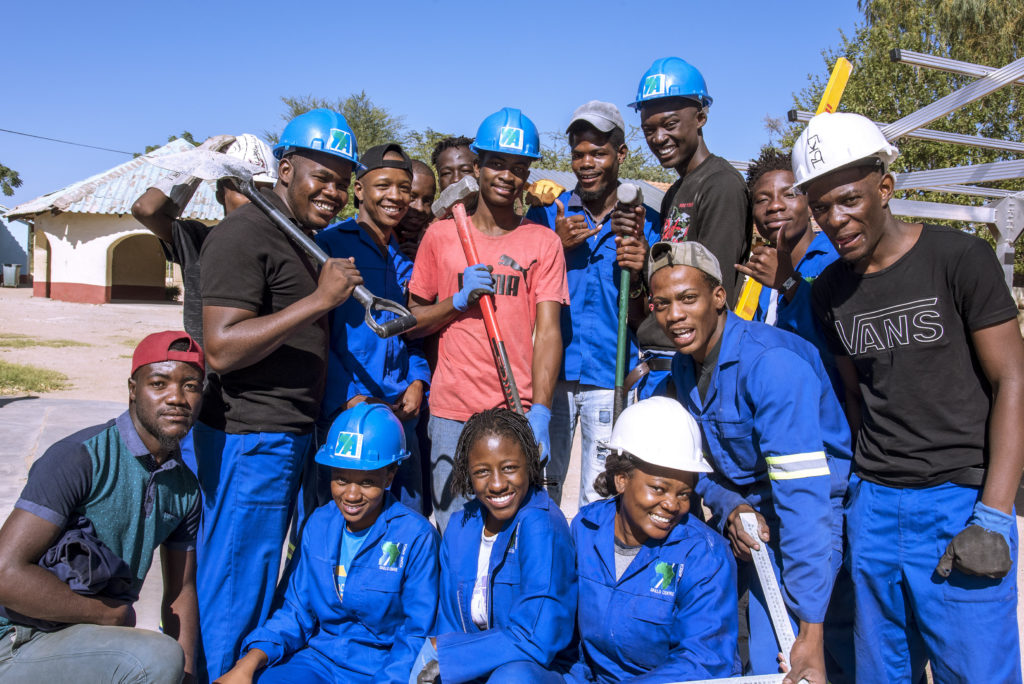
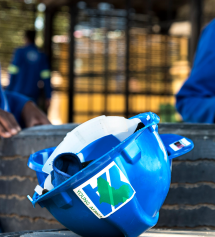
After Cyclone Idai now COVID-19
In regards to the the two major challenges; first Cyclone Idai and now COVID-19, the interviewee said that both situations have a huge impact on the scope of activities. “When Idai came through, I looked at how the facilities had become and said: ‘these damages are too much’. I asked myself a lot of questions, but there was light at the end of the tunnel: ‘If you stop regretting and look for a likely solution, you could easily get out of that situation’. A reconstruction plan was prepared and submitted with cooperation partners. I must say that what touched me the most was the destruction of the female hostel, we had to improvise a shelter for 60 girls, in a very tight space, exposed to diseases.
The School had to stop for two weeks, because there were no conditions for work”, she reported, adding, however, that “minimum conditions were created and we invited all students to participate in cleaning the center and, thank God, there was commitment from everyone. With big thanks to our partner Caritas from Germany and Austria for their immediate response. It did not take long before the Dutch Embassy financed the complete rehabilitation of the facilities of our centre in Beira. We now need to focus on Dondo, and luckily our partner GIZ has already shown itself available to finance”, she said hopeful.
As for the current pandemic, she wondered: “COVID-19 brought a radical change in plans: inspections were suspended for accreditation of qualifications by ANEP, reduction in the ability to pay monthly fees for non-scholarship students which limits the institution’s internal management, temporary suspension of employment contracts with part of the center’s workforce, the period of the end of the course and the beginning of the second semester was compromised, the lack of smartphones from the students made online classes almost impossible, the insertion of young people in internship programs has been suspended and partner companies are working on the rotation system which undermines the reception of interns ”, she added.
“The selection criteria for studying at Young Africa must be at least Grade 7, the level of vulnerability of the families, filling in of the registration form, has allowed the center team to travel to assess whether the community really checks the information.
We offer scholarships that, annually, are destined for women, due to the exclusion of women in the training process in the local communities. We have a total of 250 scholarships for Beira, financed by the Irish Embassy, and the European Union has financed 330 scholarships for Dondo, with a have a total of 706 scholarships”, she highlighted.
This interviewee told us that a reform in the professional training process is underway, from classic to regular. ”We already have a license and accreditation. Our ambition is to ascend to a professional institute, where the training process lasts three years, which would effectively facilitate continuity in higher education depending on the course”, she envisaged.
This is a translation of the original Portuguese article that was published here.
